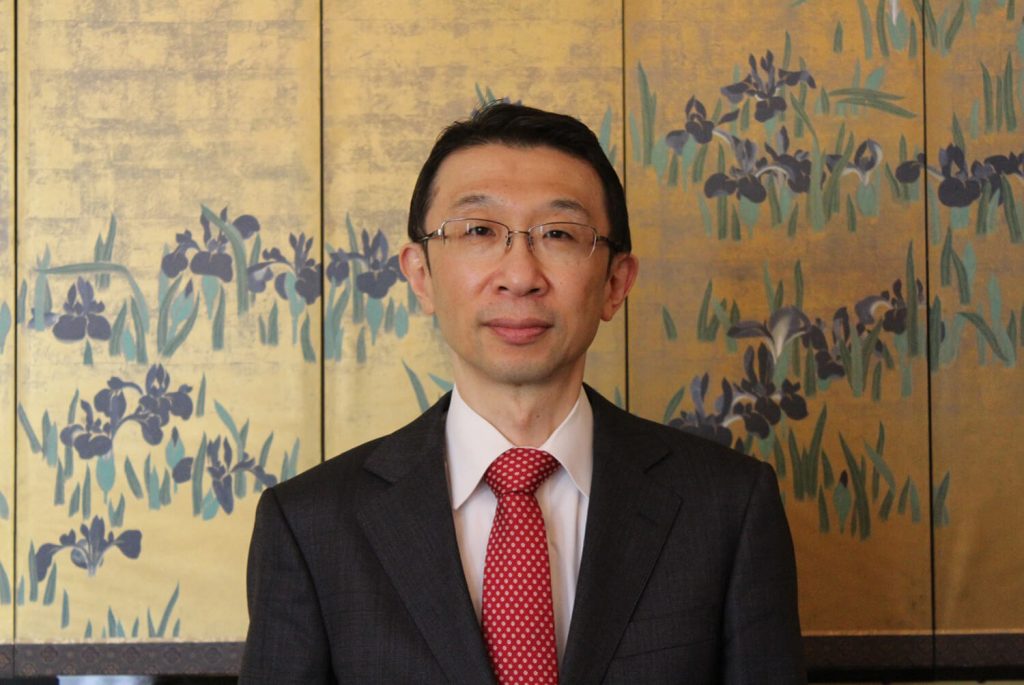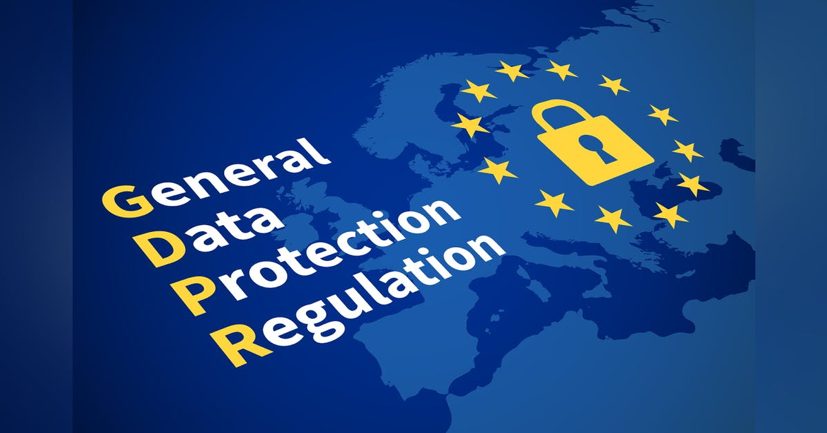Ambassador of SDG 11- Sustainable Cities and Communities
Former Ambassador Extraordinary and Plenipotentiary of Japan to Georgia, IMAMURA Akira

How we can achieve sustainable cities and communities, inclusive settlements in Georgia?
I think the key here is for people to show care to others, compassion to others, attention to other people. Why? Because, inclusiveness or sustainability, or the safety of any community, any city is, after all, about others, caring for others. For example, in the case of inclusiveness, you have to care about those people with disabilities or the elderly, children, women, and those who are in a weak position. And we need to do something, change the current conditions for those people to let them have easy access. And for sustainability, it’s all about caring for the environment. So, it’s also part of showing your compassion to others. And talking about safety, it’s to protect others from disasters, whether it’s natural or man-made accidents. So that’s why I think this is the key.
One of the main directions of Goal 11 is ensuring accessible and sustainable transportation on a local level. What would you say is the main challenge in that direction in Georgia?
Sustainable Communities is, of course, important for all of our countries, including Georgia, and I think transport is the key to achieving sustainable communities. The central question is how can we arrange transport in any of the cities in any country, including Georgia, because mobility is something that you benefit from through integration with the economy. So, for any development, it is crucial and also for sustainable communities. What is crucial for transportation is to have an eco-friendly and energy-efficient transportation system. For all of us, including Georgia and Japan, the challenge is how to mitigate congestion or how to reduce the emissions of greenhouse gas, and how to reduce air pollution. I think here again, the key is to focus on eco-friendly transportation systems, especially more reliance on public transportation and eco-friendly vehicles. So, in the case of Japan, we have, in big cities, well-developed public transportation systems, like metro trains and buses that people can use and have good accessibility. Often, those vehicles use energy-efficient and eco-friendly systems. If you look at Georgia, of course, you face a similar question. What I like most in Tbilisi, in your city, is that you can use this electric skateboard for free and you can share it with everybody. We don’t have that system yet, maybe in the future, but we have a car-sharing system. This is operated privately, not publicly owned, like in Tbilisi. But why not? Maybe in the future you will have that in Tbilisi as well. You can share with other people in your community. When it’s not necessary for you, somebody else can use it.
We mentioned sustainable transportation. One of the directions of Goal 11 is also ensuring road safety. What are the challenges in Georgia? Because we know that the statistics are not that good in our country. We had more than 2000 road accidents in the first half of 2022 and around 200 deaths due to road accidents, with more than 3000 people injured. What can be done in the country in order to promote road safety? And what should different stakeholders do?
Here again, I think the key is how to show respect to others. In Japan, we also have statistics like you. Let’s focus on death on the roads. The peak was in the 1970s when we had quite a rapid motorization, so the number of users of cars increased quite rapidly and it [number of deaths] reached 15,000 people annually. Vast numbers of people have died on the streets because of traffic accidents. But thanks to all the measures that we put in place, last year’s statistic was around 2,300. So, it’s just 1/6 of the peak. Of course, there are lots of technologies used within the vehicle to protect you from any serious injury or death. But I think the most important was the advocacy of safe driving. And here, I think also [this can be] suggested for Georgian drivers. I think there’s a linkage between Japan and Georgia in how you show your respect to others, because I know that, in Georgia, Japanese martial arts, like judo or karate, are quite popular. And actually, during the Tokyo Olympics last year, we were good rivals in competing with each other for the medals. Each of those martial arts starts with a bow and ends with a bow. This is a show of respect to your opponent. Even your rival is somebody you respect. And this is a very important concept for martial arts. It’s not just sports. It’s more than sport. It’s something that you learn for strengthening of discipline and respect. So, if you are so strong in those martial arts, I know that you are respecting your opponents and others, and I think you can apply this practice to drivers or your daily life. And I’m sure you can do it if we have done it.
We are talking about different stakeholder roles in this process as well. What is the role of the business sector, and how important is it for different stakeholders to partner and coordinate in the process of contributing to Goal 11?
Business plays a crucial role in achieving Goal 11, especially through two means. One is by providing the goods and services you give to the people or your customers. And secondly, through organizing your workplace, your office or stores. In the first sphere, I think businesses can contribute by providing goods, services, or products using, for example, accessible design. So, if you produce, let’s say, a plastic bottle for milk, you can make plastic bottles for persons with vision impairment so that when they touch it, even without vision, they can distinguish that this is a milk bottle compared to other bottles. That’s one example. And if you use, of course, any kind of service or product, they are connected with a long supply chain nowadays. When you produce, let’s say, your goods using some materials you’re buying from suppliers, you should use those materials that are produced with eco-friendly or sustainable means. That’s one way of doing it. And also, through your workplace; for example, you should design your office so it is accessible to people with disabilities or elderly people. If you are making stairs, change it into a slope for people with wheelchairs, for example. You can also hire more people with disabilities to give them the opportunity to work and raise the awareness of people surrounding them for the betterment of accessibility.
The second part of the question concerns the role of the partnership between the different sectors in order to achieve Goal 11. What would you recommend?
Businesses have to be engaged in dialogue and collaboration with other sectors of your society, including local governments, NGOs, and civil society. Because, especially, local governments have a strong influence in creating a conducive environment for sustainable city development, even a decisive role. So, businesses should engage in dialogue with them, or vice versa. Local governments should create a platform for businesses and NGOs to participate and start discussions on how we can improve city development in the way that we’re discussing.
My next question will be more around what the Embassy of Japan is doing in Georgia in order to support the implementation of Goal 11 in the country. And what can we learn from Japan itself, on how we can better achieve Goal 11?
Our focus right now is to collaborate with Georgia in environmental protection, especially the reduction of greenhouse gas emissions, to fight against this massive challenge of climate change. And we have just signed, in September, a memorandum with your government to promote collaboration between the Japanese private sector and their Georgian counterparts, either private or also public sector, to create a joint project that will lead to the reduction of emissions. We can transform the reduction into credit, which we can split between our two countries. And this is a very flexible scheme because it isn’t limited to any specific project. It can cover almost any sphere that will lead to emissions reduction; for example, the construction of a hydropower plant or any renewable energy production is potentially eligible.
Another example is transportation, that we are talking about. If you replace [your vehicles] with eco-friendly vehicles, that is another example. Or even waste can be a source for reduction. If you have waste that emits methane, which is highly pollutive in terms of its greenhouse gas effect, which is more than CO2’s, [then it] can be used for power production. So, a waste-to-energy project is another eligible case for this scheme.
Last but not least is any introduction of energy-efficient technology. I talked about replacing light bulbs with LEDs and replacing boilers for hot water or air conditioners with a more energy-efficient system can also be another case. And under this mechanism that we agreed with Georgia, the Japanese government can subsidize up to 50% of the project cost through grant assistance. We advocate both Japanese and Georgian players to come together and start discussing potential projects.




 Search
Search





